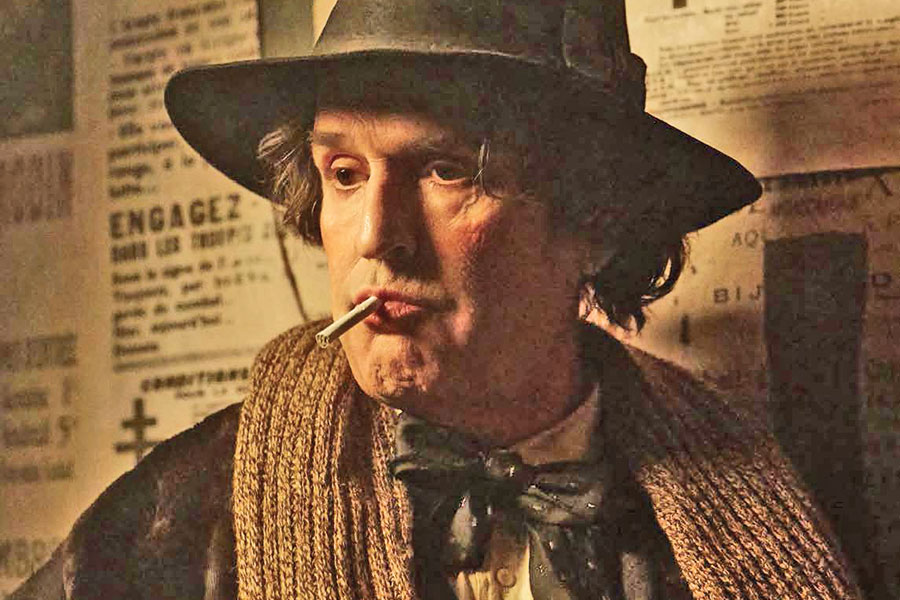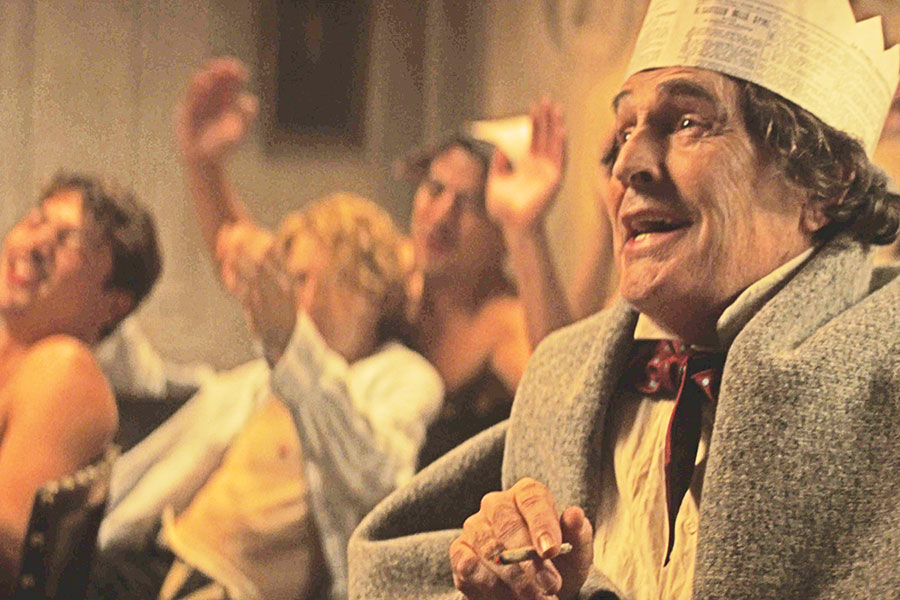
In 2007, with his film career at a standstill, openly gay actor and writer Rupert Everett felt exiled from the industry. In the metaphorical gutter, looking up at the stars, he found inspiration in the final years of Oscar Wilde, another artist who publicly hit rock bottom.
Everett then wrote “The Happy Prince,” a drama opening Oct. 19 at the Landmark Theatres, about the last few years of Wilde’s life. The setting is mainly Paris, where the celebrated writer was eking out a life, penniless after having served two years in jail for “gross indecency with men.”
The story appealed to Everett, who said in a recent phone interview: “There was a parallel that enabled me to put myself into the story.”
He threw himself not only into writing the film, but also starring in it and making his feature directorial debut. It’s an accomplished film full of Wilde’s legendary wit, as well as copious drinking, despair and even an orgy for good measure.
The actor-turned-filmmaker didn’t intend on directing “The Happy Prince.”
“I wrote it for Roger Michell, and I approached him and other directors,” said Everett. “But after two-and-a-half years, I got a no from all of them, so I decided, Fuck it. I’ll make it myself.”
It’s good that he did. Everett captures the pathos of Wilde at this specific time in his life. The film is gorgeous with period details — from the fabulous costumes to the ugly wallpaper that, Wilde exclaims on his deathbed, “has to go.”
Everett described the appeal of this particular slice of the writer’s life: “For me, what is attractive about him is that he’s the last great vagabond of the 19th century. The picture of him shuffling around Paris and keeping his eye out for victims to catch drinks off of and saying hello to his petty, criminal friends. He used to be amazing, and the most celebrated, but fate has reduced him to being a tramp. I find that to be one of the most romantic stories of the 19th century: the riches to rags and fall of Wilde.”
In the film, Wilde is stripped of his family, his work and his freedom; he is impotent, desperate and ruined. But he seems intent on living for the moment — hiring young men for sex, drinking and singing, even though he is frequently humiliated.
Everett makes viewers feel for Wilde, even when he is at his worst.
“I love him for his bad qualities as well as his good ones. I think that he didn’t approach life as a victim. Today we worship victimhood. I find that depressing. I think Wilde was not a victim. He carved his own constitution on the street, he was curious about life, had crushes, was tragic and bitter at times, but maintained a sense of humor. It didn’t occur to him to be a victim of his fate.”
“The Happy Prince” features several lines from Wilde on suffering, including “There is no mystery greater than suffering.” Everett explained that he appreciates the idea of “suffering as catharsis.” He quoted the writer: “‘It’s an extraordinary idea, amazingly Wildean and exotic. I think he means suffering is purifying. It’s fertilizing. It shouldn’t be shied away from. It should be driven through.”
The film also looks at Wilde’s romantic relationships. Another Wildean quote in the film is: “Suffering is nothing when there is love.” And while his lover, Bosie (Colin Morgan), was responsible in part for getting Wilde imprisoned, the two men reconnect for an ill-fated trip to Naples after Wilde was living in Paris. (This, despite Wilde saying he would resist the temptation Bosie poses.)
“I think Bosie regretted going to Naples,” Everett said. “In the film I have them going straight away. In reality, Bosie went on holiday with his mother first. It was half-hearted. Bosie wanted money and didn’t like Wilde without money.”
In contrast, Wilde’s friend Robbie Ross (Edwin Thomas, who is terrific in the role), who cared for him in Paris, loved him unconditionally. It was, tragically, something Wilde realized too late.
But “The Happy Prince” does not wallow in complete despair. Everett imbues his film with wit and wisdom. (A line about poverty is particularly amusing.)
What’s more, the film shows the filmmaker as a talent behind the camera. When asked what he may do next — having directed “The Happy Prince,” acted in dozens of plays and films, published two novels and two memoirs and penned two screenplays — Everett responded, “Politics — I’m kidding! I’d love to direct another film. I’ve written it. I’m just going to keep being engaged.”
